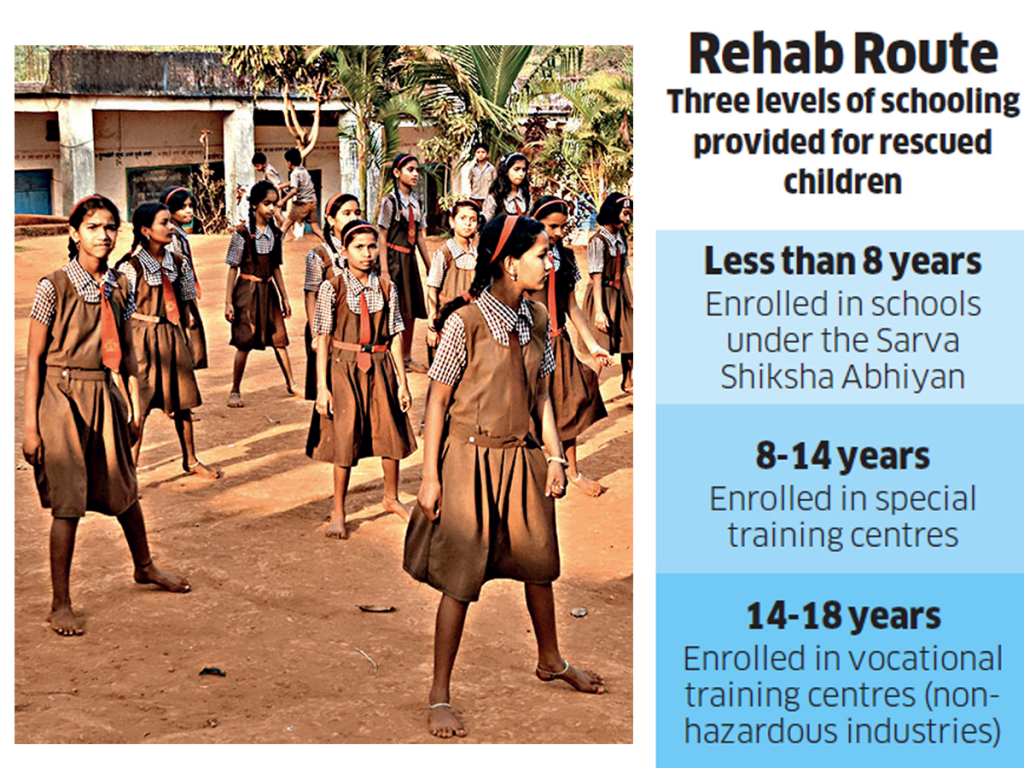PENCiL Portal
About the portal
-
- The Platform for Effective Enforcement for No Child Labour (PENCiL) Portal is an electronic platform organised by the Ministry of Labour and Employment involving Centre, State, District, Governments, civil society and the general public in achieving the target of child labour free society.
- The portal was launched in 2017 under the Ministry of Labour and Employment’s National Child Labour Project (NCLP).
- NCLP is a Central Sector Scheme launched in 1988 to rehabilitate children indulged in child labour. Under the scheme District Project Societies (DPS) are set up at the district level under the Chairmanship of the Collector/District Magistrate for overseeing the implementation of the project.
- At district level District Nodal Officers (DNOs) are nominated to take action on the complaints of their respective districts. Complaints about child labour filed on PENCiL are forwarded to the DNOs for further action. Rescue measures are undertaken in coordination with police.
- Rescued children are sent to centres where they get an education or are imparted vocational training. Children less than 8 years are enrolled in schools under the Sarva Shiksha Abhiyan; children in the 8-14 year bracket are sent to special training centres (STCs) and 14-18-year-olds are enrolled in vocational (skill) training centres.
- India has 1.01 crore child labourers, according to Census 2011, against 1.26 crore in 2001.

Why in News?
- The government has appealed to citizens to report the instances of Child Labour on PENCIL Portal or by calling on Childline-1098, India’s first 24 – hour, free, emergency phone outreach service for children in need of care and protection.
Related Information
The Child Labour (Prohibition & Regulation) Amendment Act, 2016
- The Act amends the Child Labour (Prohibition and Regulation) Act, 1986. It completely prohibits the employment of children below 14 years.
- The amendment also prohibits the employment of adolescents in the age group of 14 to 18 years in hazardous occupations and processes and regulates their working conditions where they are not prohibited.
Exceptions
- While the Act prohibits the employment of children below 14 years in any occupation or process, they are allowed to work in two cases.
- They can help their families or family enterprises if the work is not hazardous and only after school hours or during vacations.
- They can also work as artists in an audio-visual entertainment industry (including in advertisements, films and television serials, or in sports activities other than circuses) if such work follows appropriate safety measures. Children can only do this kind of work if it does not affect their education.
Punishment
- Anyone who employs a child or adolescent or permits him/her to work without following the regulations mentioned in this Act and the Child Labour (Prohibition and Regulation) Act, 1986, can be imprisoned from six months to two years or fined between Rs. 20,000 and Rs. 50,000, or both.
- A person who has been convicted of a similar offence before can be imprisoned for 1-3 years. The parents or guardians of children or adolescents thus employed cannot be punished unless they violate the regulations mentioned in these Acts.
Subscribe
Login
0 Comments
